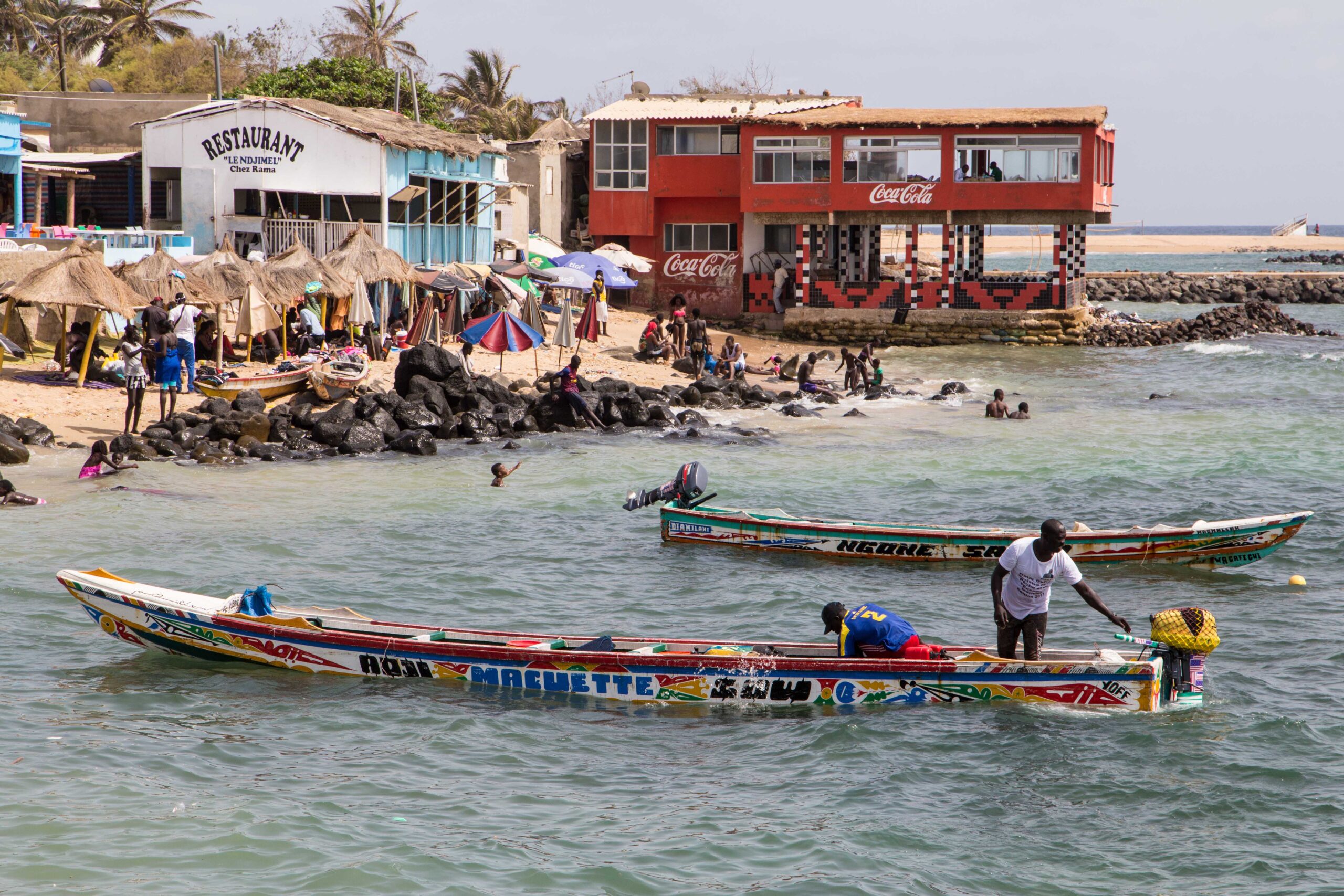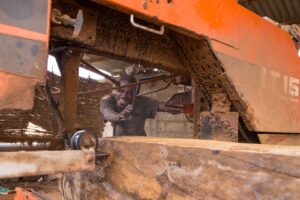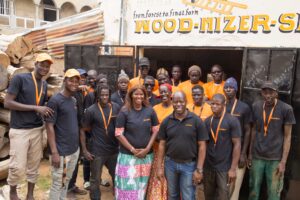Welcome to friendly Senegal, where different languages, cultures, climate extremes, landscapes and a rich timber processing history provide the setting for a busy sawmilling sector in the country.
Legend is that Senegal’s former Portuguese colonial masters made a mistake when they gave the country its name.
When the Portuguese met a Wolof-speaking Senegalese in the 16th, they assumed Sunuu Gaal was the country’s name. Little did they know that it meant “These are our boats” and that the speaker was eyeing their boats!
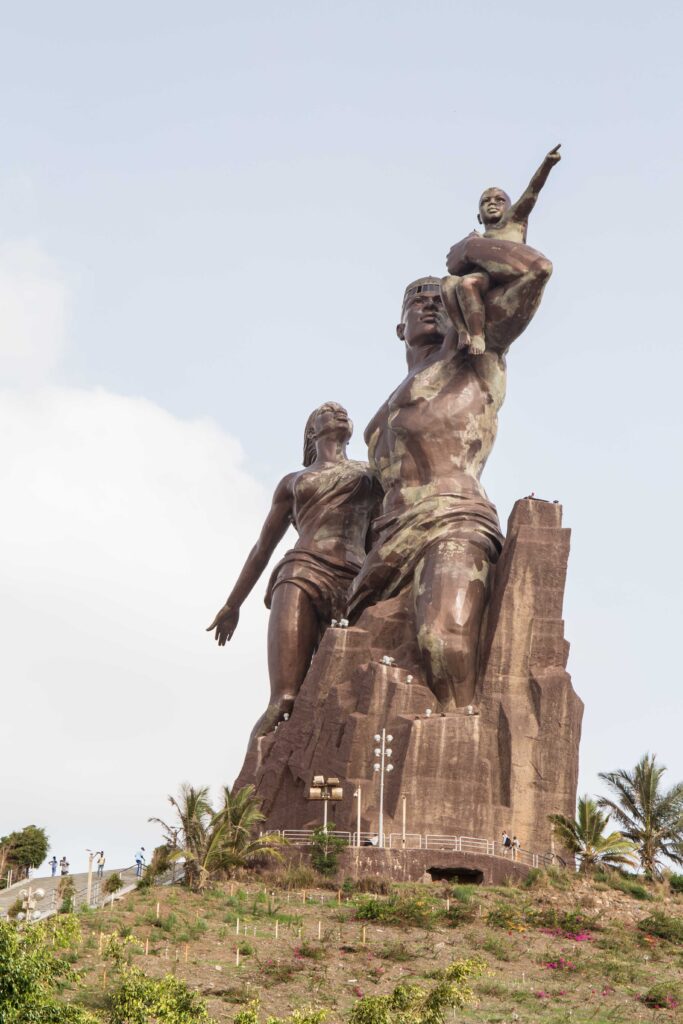
The African Renaissance Monument in Dakar celebrates Africa’s liberation from ignorance, intolerance and prejudice.
With a population of just over 16 million, Senegal lies on the Atlantic Ocean at the westernmost point of the African continent.
Senegal’s warm climate changes from tropical in the south to a semi-arid middle part and baking hot desert conditions in the north.
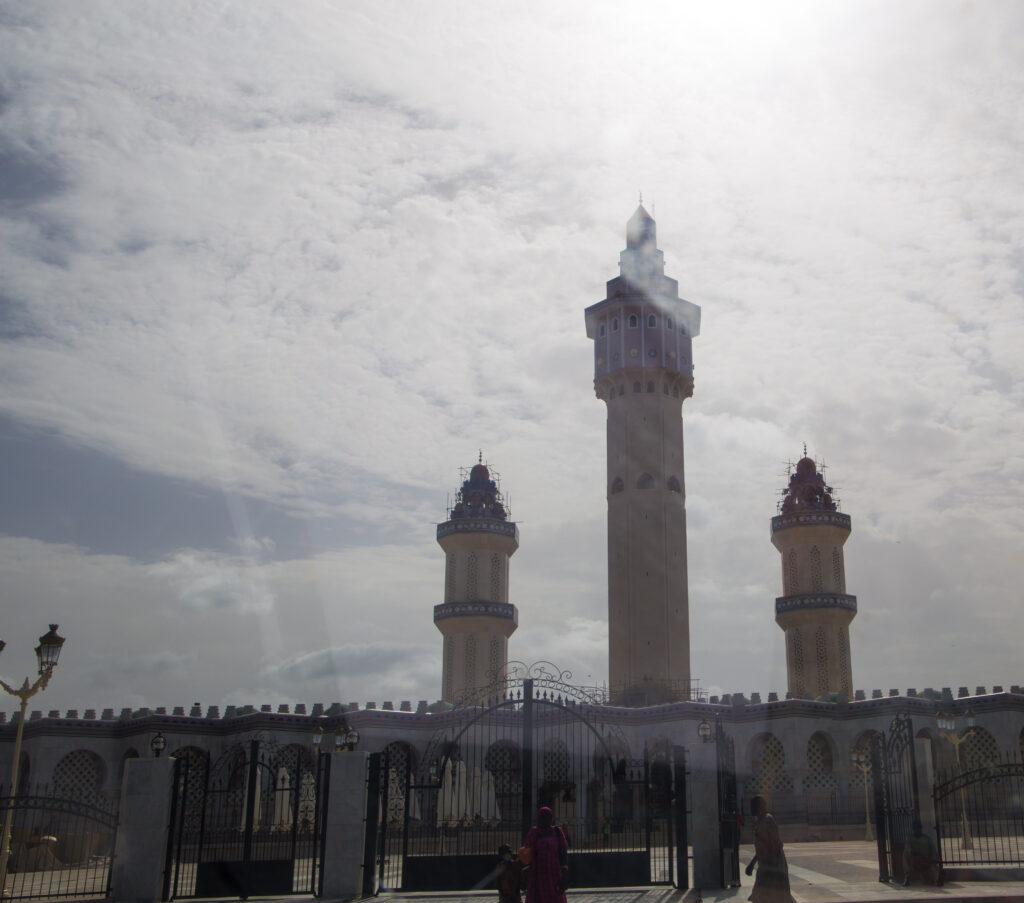
The Grande Mosque de Touba confirms Senegal’s religious freedom.
It shares borders with several countries, and because it is an important economic hub in West Africa, its exports flow freely into the region, the success of this making Senegal the 119th largest export economy in the world.
The prosperity of a growing economy and a stable political landscape order in the country has allowed Senegal to build diverse languages, religions, ethnic groups and cultures into a success story that few countries in West Africa can emulate.
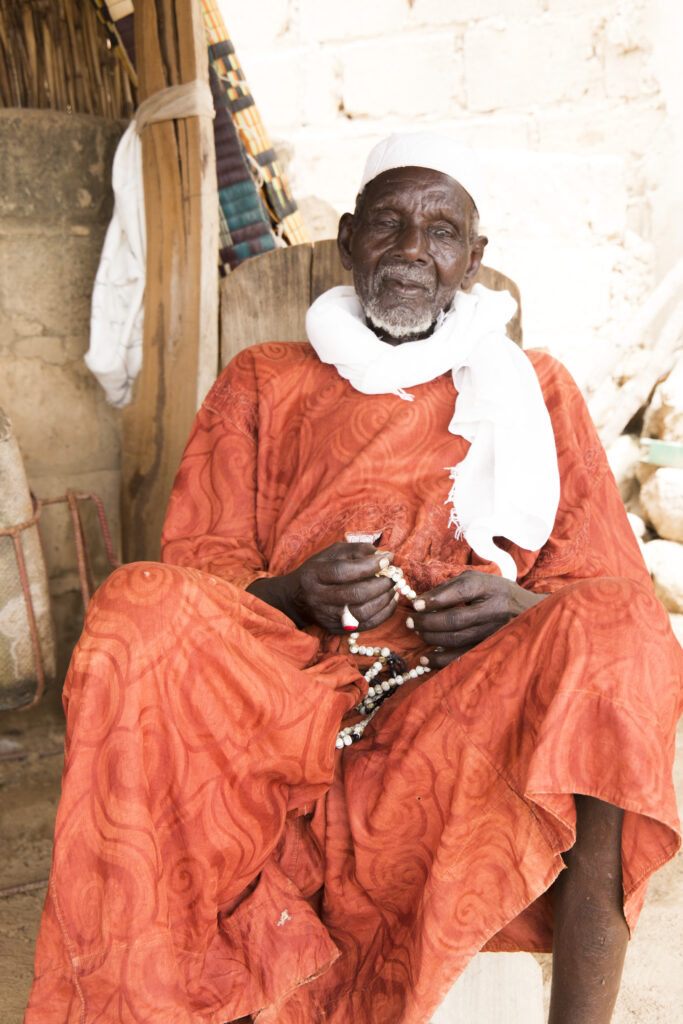
The diversity that is Senegal.
Sawmilling in Senegal
Senegal has about 6.2 million hectares of classified forest, most of it in the country’s Casamance region.
Firewood and charcoal are the most important forest products, but round logs exports add to the timber economy. Most of the exported logs are made available to sawmillers in Senegal to process into sawn timber for local use.
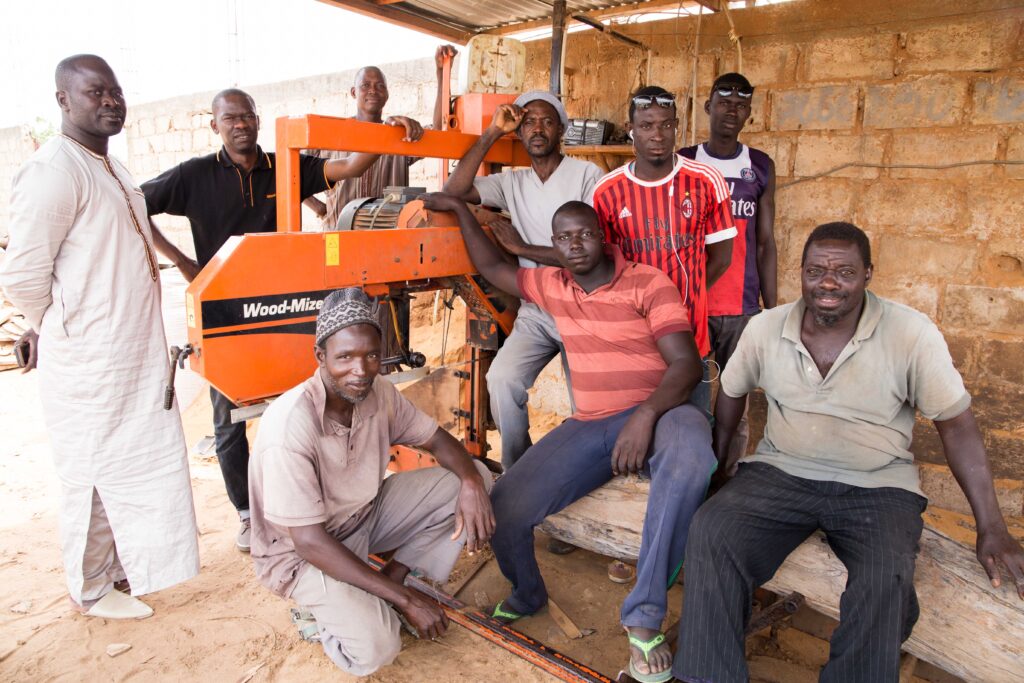
Wood-Mizer is the preferred sawmill brand in Senegal.
A logging ban imposed by Senegal and Gambia to clamp down on timber exports and log smuggling has made it more difficult for sawmillers in Senegal to get logs for processing.
But sawmills in the country are used to hardship.
They have stockpiled logs to bypass the log scarcity and continue to trade and create a booming sawmilling sector in the country.
The sawmilling trade in Senegal is generally organised in loose sawmilling associations that group together in sawmilling and timber processing hubs scattered across the country.
The Pikine sawmilling compound in Dakar and the Lagal compound in Kaolack show how these hubs are busy crossroads where sawmillers, merchants and manufacturers trade and barter for the best deals.
Wood-Mizer is the preferred brand in both sawmilling compounds and across Senegal. There are several reasons for that.
- A Wood-Mizer sawmiller in Touba.
- Wood-Mizer Africa’s official dealership in Senegal’s Diourbel Region in a city called Touba.
With logs no longer freely available because of the logging ban and the focus on log exports, saw millers know they need to use every inch of available timber as best as possible.
Wood-Mizer sawmills offer affordable modern technology that wastes less and produces more sawn timber for higher profits.
The dated circular and wide bandsaw sawmills still used in Senegal waste a lot of timber and energy. Sawmillers know that Wood-Mizer sawmills increase their profits because they now have more sawn timber to sell.
Manufacturers that trade next to the Wood-Mizer sawmills also prefer using the sawn timber produced on a Wood-Mizer sawmill.
Wood-Mizer sawmills cut accurate boards that need minimal finishing before manufacturing can start. This makes it useful for manufacturers because their production costs are lower and their profits higher.
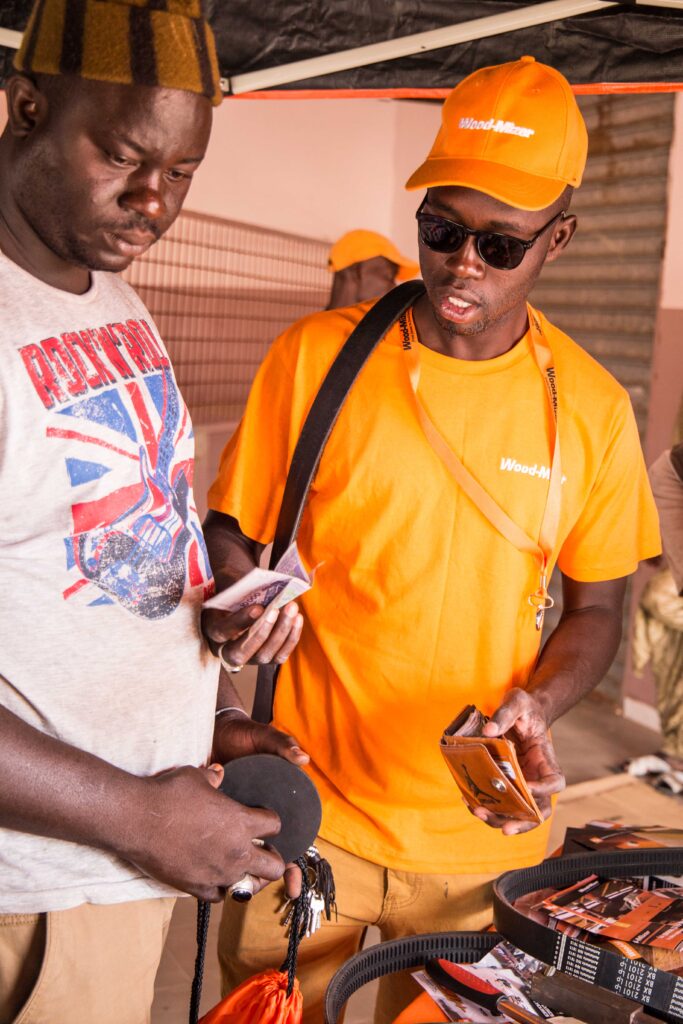
The friendly staff of Diaw Ibrahima, Wood-Mizer Africa’s dealership in Senegal.
The affordable pricing of Wood-Mizer sawmills and the availability of a Wood-Mizer dealership in Senegal make it easy for sawmillers to save money and grow their businesses.
Because Wood-Mizer understands the frustration of not having a local dealership that can ensure good service, it has grown its dealership network across Africa to include Senegal.
Wood-Mizer’s dealer in Senegal is Moustapha Diaw, who runs an independent equipment supplier and distribution network across Senegal known as Diaw Ibrahima.
New machine sales and after-sale service support, technical advice, spares and training are some of the benefits that sawmillers in Senegal can rely on when they buy a Wood-Mizer sawmill.
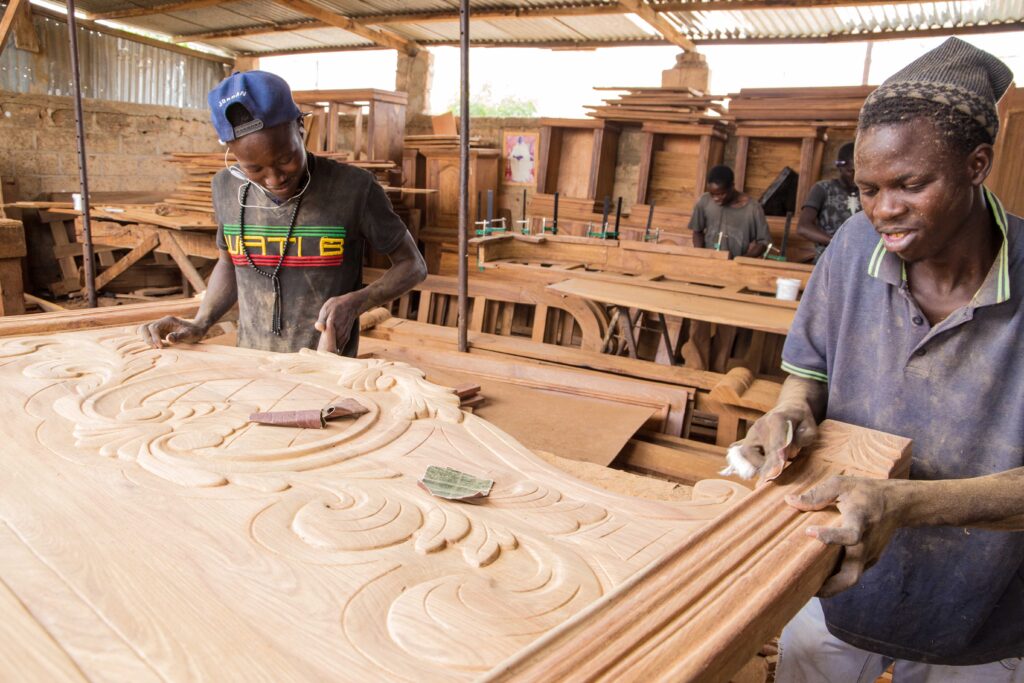
Well-stocked spare parts trade hands
Moustapha is also a saw miller and understands the value of good service.
He’s ploughing the lessons he learned to grow his sawmill back into the Wood-Mizer dealership to benefit saw millers across Senegal.
Go to our website and find out more.

